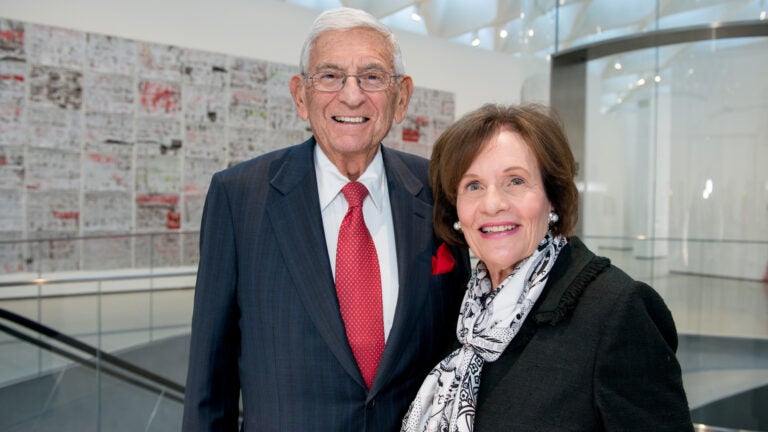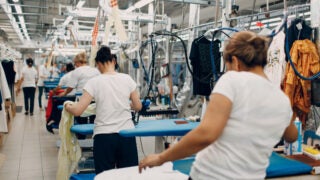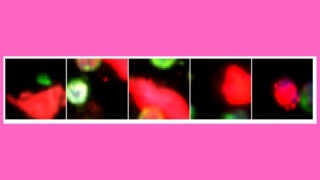
Eli and Edythe Broad add $1 million donation to further stem cell research
The gift will support early-stage research projects at three California university stem cell centers, including USC’s
Philanthropists Eli and Edythe Broad have donated $1 million to support eight grants for early-stage stem cell research projects at three California universities including USC.
The gift came at a Feb. 3 symposium marking the 10th anniversary of the stem cell research centers at USC, UCLA and the University of California, San Francisco, established with support from the Broads and the California Institute for Regenerative Medicine (CIRM).
We love scientists because none of you are satisfied with the status quo.
Eli Broad
“We love scientists because none of you are satisfied with the status quo,” Eli Broad said at the symposium, hosted by UCLA.
Among the groundbreaking discoveries of stem cell researchers is a cure for infants born without a functional immune system — an inherited condition called Adenosine Deaminase Severe Combined Immunodeficiency, or “Bubble Baby Disease.”
The traditional treatment is a bone marrow transplant from a matched donor, which carries significant risk of fatal immune rejection or other complications. Donald Kohn’s lab at UCLA engineered a better source of transplanted cells: the patients’ own stem cells, in which the disease-causing mutation has been corrected using gene editing. This cure already proved successful in clinical trials, and is now being commercialized with support and funding from CIRM.
“It’s hard to put into a simple sentence how important this philanthropy has been for all three of our centers,” said Owen Witte, director of UCLA’s stem cell research center. “But I can honestly say that without their philanthropy to help establish these three sites, I don’t think UCLA would have accomplished what we’ve been able to, and I’m pretty sure the same holds true for USC and UCSF.”
Science, art and education
Andy McMahon, director of USC’s stem cell research center, highlighted the Broads’ enormous influence not only on science, but also on art and education.
“Art, education and science hold special and personal meanings for us all,” said McMahon. “Through art, we explore our imaginations. Through education, we realize our potential. Through science, we improve our lives. And through the Broads’ lifelong and transformative philanthropy, art and education and science have flourished to the great and obvious benefit of all.”
In addition to recognizing the Broads, the symposium highlighted recent scientific progress in regenerative medicine.
Arnold Kriegstein, director of UCSF’s stem cell research center, shared how his stem cell research spurred an ongoing clinical trial, using the antibiotic Azithromycin as a treatment for Zika patients in Brazil. UCSF’s Holger Willenbring is nearing the clinical trial stage with a stem cell-based approach to treating liver scarring, also known as fibrosis or cirrhosis.
From cancer to aging
Other scientists shared projects at any earlier stage of research and discovery. They painted a vision of a future in which kidney disease, hearing loss, cancer, infertility and even aging itself could become afflictions of the past.
USC’s Neil Segil discussed hearing loss, which affects approximately 10 percent of the world’s population and half of the retirement-aged population. Most hearing loss is due to damage to the inner ear’s sensory cells, which do not regenerate in humans. However, they do regenerate in non-mammals, such as birds — thanks to a population of neighboring cells that respond to deafness by differentiating into replacement sensory cells. Segil’s group is exploring ways to stimulate a similar regenerative response in mammals.
The mutations underlying cancer were the topic for USC researcher Min Yu. Her lab studies patient-derived breast cancer stem cells (CSCs), which break off of the primary tumor, enter the bloodstream and seed the new metastatic tumors that ultimately prove fatal. In analyzing these CSCs, her lab found that certain mutations and gene activity can consistently predict specific patterns of metastasis — such as the formation of secondary tumors in the brain versus other organs. These insights could inform the future of personalized medicine.
The updates were well received by the Broads. “Edye and I want to thank each of you for your dedication,” Eli Broad said. “We cannot express how much your work means to us and how we appreciate all you do to improve human health.”



